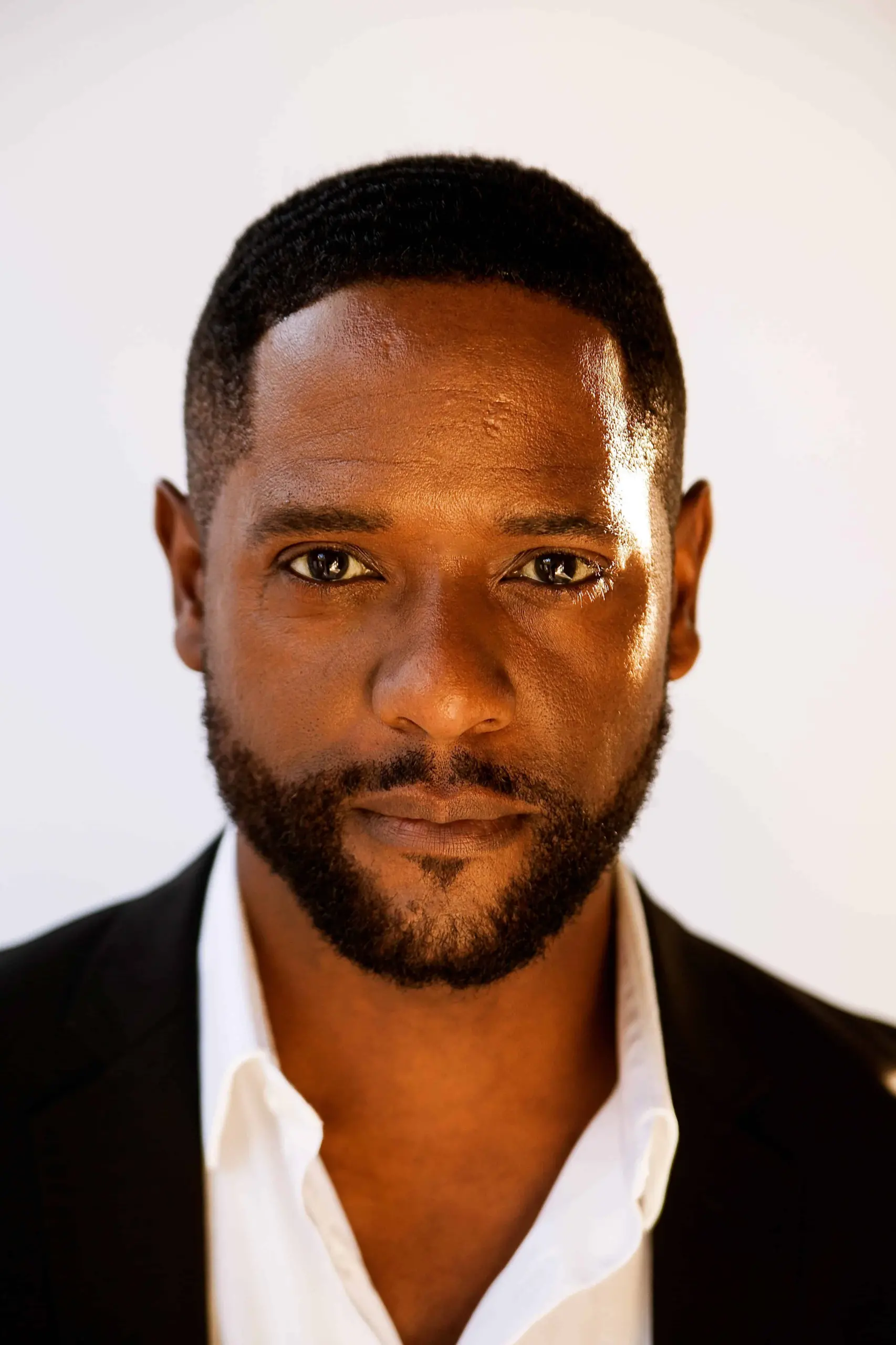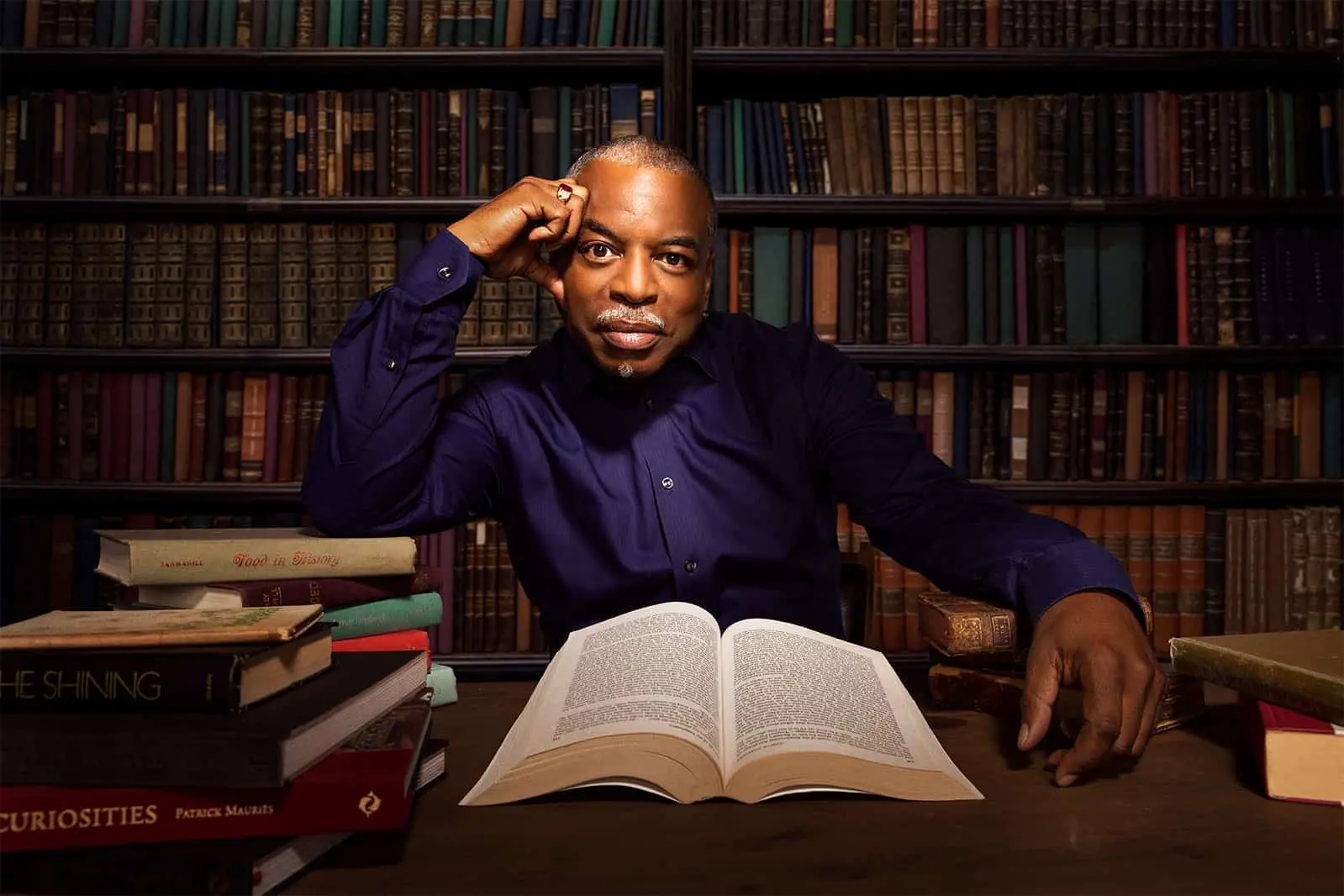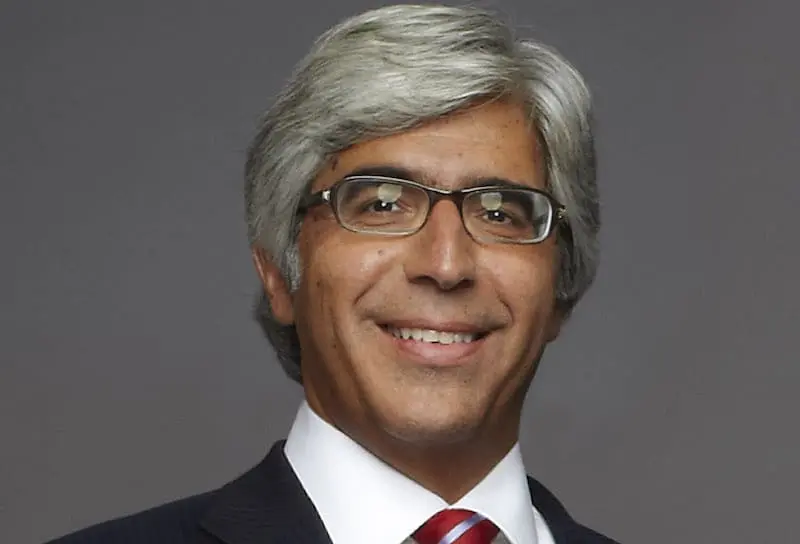In an intimate tribute to Toni Morrison at the 2019 LitFest Gala in Los Angeles, acclaimed actor and author LeVar Burton honored the late writer’s legacy. He celebrated her narratives illuminating the lives of people in the margins of society and acknowledged Morrison’s impact on his own life. What follows is Burton’s tribute speech to Toni Morrison.
LEVAR BURTON: Good evening. Toni Morrison was ours. I mean, she shared her wisdom, her talent, her truth with the world at large, but first and foremost, she was unreservedly, unashamedly and always unapologetically Black. She wrote about the dreams our ancestors had for us, about the dreams we have for our children, and of those we hold for ourselves. She wrote about the myriad ways we love and our stoic perseverance through loss after loss after pain-filled loss. The lens through which she explored humanity was colored by colored people. She embraced us, championed us, spoke to us and for us, and in turn, we served as her inspiration, her subject matter, her muse. Through both actions and attitude, in words and in deed, she represented us with effortless nobility on the world stage. A literary lioness. She suffered no fools and took no prisoners in the service of elucidating for the white world the puniness of prejudice and the pervasive nature of their ever-present privilege.
“Toni Morrison was a revelation.”
She once famously took a young melanin-challenged journalist — that’s code for white people — she took this young woman to task for asking her if she ever intended to write a substantial caucasian character in one of her books. And when the girl persisted, pressing her point about the deficiencies in Toni’s hand, Toni placidly replied and I will quote her here, “You can’t understand how powerfully racist that question is, can you? Because you would never ask a white author, when are you going to write about black people? Whether he did or not, whether she did or not. Even the inquiry comes from a position of being in the center and being used to being in the center.”
She went on to say being an African-American writer is sort of like being a Russian writer who writes in Russian for Russians. And the fact that it gets translated and read by other people is a benefit. It’s a plus, but he’s not obliged to ever consider writing about French people or Americans or anybody else. Toni didn’t play. Her narratives were populated with people who looked like me.
Her stories celebrated those living in the margins, the invisible and the oppressed. She elevated us with her prose. Illuminating in the process the deep and abiding humanity of her characters. She was a voracious reader. She reveled in the written word. She wielded words like a sword and shield, slaying the dragons of racism, sexism, exclusion, and discrimination with dispatch and extreme prejudice.
She was a colossus standing astride the worlds of both the black community and that of the literary cognoscenti. She was fluent in the language of both constituencies yet confound by neither, rising instead to the level of master interpreter of humanity and our condition. The depravity and divinity of both body and soul. Growing up it was not all that common for me, a chubby, bespectacled, bookworm of a kid, to encounter heroes in the pages of the books I devoured who looked like me. Toni Morrison was a revelation. She wrote about people in places and situations that were familiar to me. Like my own mother, she was a daughter of the Midwest, and in her writing, I could hear the rhythms and speech and familiar turns of phrase used by my aunts, uncles, and cousins. She chronicled the great migration of Black people up and out of the clutches of the South and our movement to somewhat safer environments in the North.
“In my experience, there are people and there are folks. Toni, she wrote about folks.”
My own family was shaped by a desire to escape the South and its adherence to its Antebellum ways and I could recognize the striving of my maternal grandparents in her work. In her words, I could almost taste my grandmother’s sweet yet savory sausage, which was a blend of the beef and pork they raised themselves on their small family farm on the outskirts of Kansas City, Missouri.
In characters formed by her loving hand, I could see my mother, Erma Gene, who graduated from Philander Smith, a historically black college in Little Rock, Arkansas. The first person in her family ever to go to college. In her work, I saw myself. She helped to validate my very existence. The very vanguard of the importance of representation in the media, she understood all to well that in absent positive portrayals in the popular culture of oneself, a child is sent a soul-crushing message. A message that says, you have no value, you have no importance in this world. Her characters were fully formed and unforgettable. In The Bluest Eye, she gave us Nicole, a midwestern Black girl driven mad by her inability to achieve the standard of beauty she so coveted.
Macon Dead Jr. in Song of Solomon, prodigal son of the family Dead, also know as Milkman because he suckled at his mother’s breast until he was four. Sethe, a mother living with the self-inflicted wound of abject grief and the ghost of her daughter killed by her own hands that she had called Beloved.
In my experience, there are people and there are folks. Toni, she wrote about folks. She began her illustrious writing career relatively late in life. She had already had careers as a wife, a mother, a college professor and as an editor, first of textbooks, and then moving to New York to become the first Black female editor of fiction at Random House. While there, she helped shaped the early works of Angela Davis and the Black Panther leader Huey P. Newton, among others.
When her first book was released in 1970, I was an impressionable 13-year-old, and in a career that spanned some 50 years, I could always count on her to release another title, another literary lifeline that erased the sting of living in and loving a country that did not love me back.
Eminently quotable, she leaves us with some of the most memorable lines in literature: “The function of freedom is to free someone else;” “If you don’t see the book you want to read, then you must write it;” “There is nothing more to say except why? But since why is so difficult to handle, one must take refuge in how.” Perhaps my favorite, one that always causes me to think of my own beloved, another daughter of the Midwest, my wife of 30 years: “She is a friend of my mind. She gather me, man. She gather the pieces that I am and give them back to me in all the right order. It’s good, you know, when you’ve got a woman who is a friend of your mind.”
“May her wisdom, her guidance, and her incredible stories inform, inspire, and sustain us going forward in what are certain to be very difficult days ahead.”
Over the course of her life’s work, she had bestowed upon her virtually every award of note a writer can receive. National Critic’s Circle Award. A Pulitzer. A Nobel Prize in Literature. The French Legion of Honor and the Presidential Medal of Freedom given to her by Barack Obama. I miss Obama. If you miss Obama, can I get an amen? Can I get an amen? She had a glorious and longstanding relationship with this very organization, which brings us all together tonight and received, as was mentioned just before, the PEN/Saul Bellow Award for Achievement in American Fiction and these are but a few. Trust and believe, she had a lot of prizes.
And her legacy can be found in the spiritual DNA she passes on to readers and writers and thinkers and dreamers who will read her words for generations to come. In her passing, she rightfully joins the ranks of the most influential humans to ever walk this earth. My ultimate takeaway from the celestial gift that Madame Morrison was is this: That if we can sit long enough in the presence of one another and be open to the experience of hearing one another’s story, we can discover the things that we share in common with those who only moments ago we had considered the other and somehow unworthy of our time.
We have all, I believe, been made better by her presence among us. May her wisdom, her guidance, and her incredible stories inform, inspire, and sustain us going forward in what are certain to be very difficult days ahead.
Thank you.












